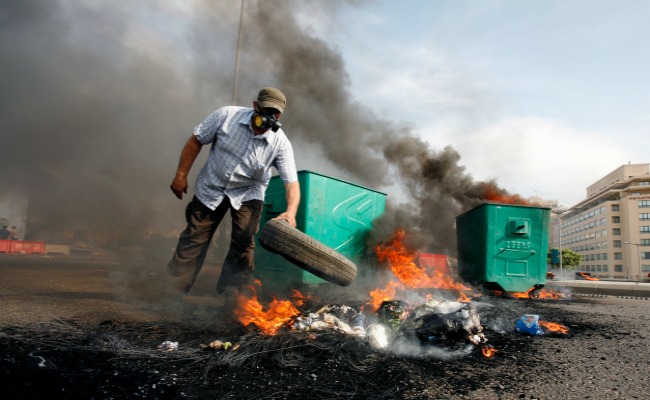Why the Hezbollah Blacklisting Is Pointless
[Originally published in The Atlantic.]
Today, the European Union designated Hezbollah’s “military wing” a terrorist group.
Aside from the fact that the very notion of a separate military wing is an absurd fiction, and that the designation has almost no chance of influencing Hezbollah’s behavior, is there any reason to care?
I would argue that yes, there is; terror designations carry real consequences — if not the ones their authors intend. On balance, I believe that when Western countries blacklist groups they define as terrorist, it harms their own policy aims much more than it does the targeted group. Talking to “terrorists” is political unpopular, but also necessary. It’s one of many tools required to deal with violent non-state actors, along with intelligence work, policing, force, and economic levers.
In the case of Hezbollah, the European Union will now join the U.S. and member governments like Britain in making it all the more difficult to find political solutions to the imbroglios of the Levant. Hezbollah is a major combatant in Syria, while at home in Lebanon it’s the largest and most influential elected political movement.
Hezbollah’s behavior is often frustrating (to its Lebanese rivals as well as to Western governments), and it has been credibly linked to violent plots, political assassinations, and pedestrian organized crime like drug dealing and money laundering.
Naturally, the European Union would like to find ways to curtail Hezbollah’s reach, especially after the group was found responsible for a deadly bombing in Bulgaria and a foiled attack in Cyprus.
But what does a terrorist designation achieve, and at what cost?
First, it eliminates communication with Hezbollah, putting even further out of reach meaningful diplomacy on the Syrian conflict and on Lebanon. It also necessitates foolish gymnastics for states that continue their relationship with the Lebanese government as if Hezbollah weren’t the primary power within that government. Effectively, it amounts to a blanket ban on dealings with Hezbollah, since the Party of God does not make any distinction between its military, political and social work; the organization is seamlessly unified, its fighters as distinct from the supreme leadership as America’s Pentagon is from the White House.
Second, it ties the EU’s hands in acting as a regional broker. How can the EU leverage its power across the Levant’s many conflicts if it won’t talk to one major player, and in fact has taken the step of branding it a terrorist group while leaving alone other factions who engage in similar violence?
In a reality where Hezbollah is a key central player, it makes little to no sense to erect a cone of silence around them (already some governments, like Britain, don’t talk to Hezbollah officials, following the U.S. lead). Any significant political accord in Lebanon must include Hezbollah, just as any political resolution of the Syrian conflict will have to include Iran and Hezbollah, along with the other states that sponsor the rebels and the government. Any other approach is simply a denial of reality and doomed to fail.
Third, the designation will hardly dent Hezbollah. Already Hezbollah operatives linked to violence or terror plots in the West are subject to prosecution in Western courts. Already, Hezbollah’s operations in the West are underground. If agents of Hezbollah are raising money for the group by trafficking narcotics in South America, or are training sleeper cells in Germany, how will the designation stop them? These already are secret, illicit operations; law enforcement and intelligence work might thwart them, but not blacklists.
Logic and experience both teach us that politics requires buy-in from the major stakeholders; that’s even more true in conflict resolution. You don’t make peace with your friends. You can’t influence a war — or an unstable polity like Lebanon — without points of entry to all the major players. It simply doesn’t work.
Historically, blacklists have never worked. Studies have shown that in a small proportion of “terrorist” groups are eliminated by force, but in the vast majority of cases when they give up violence, it is because of a political settlement.
In the case of Hezbollah (like Hamas and a plethora of Iranian institution before it), the blacklisting Western governments are setting themselves up at best for embarrassment and hypocrisy, and at worst for failure.
Ultimately, they will either let conflicts simmer on and do nothing about them (as they largely have in Syria), in which case blacklisting is just one element of a general diplomatic withdrawal. Or else they will get involved with political negotiations, talks, and maybe an agreement that will require them to make deals with the very groups that they earlier designated as beyond-the-pale terrorists with whom any parley whatsoever is unacceptable. When reality prevails, the Western governments end up in tortuous talks through intermediaries, or else they simply ignore their entire directive.
There is almost nothing gained from a terror designation other than the public relations bounce and perhaps some domestic political credit with the tough-on-terror crowd.
But only politics and long-term strategy stand a chance at limiting Hezbollah violence and shifting Hezbollah’s political priorities. It’s unlikely that a smart Western policy would result in a behavior change from Hezbollah, but it’s guaranteed that a terror designation won’t do the trick — and in fact, will only further limit the West’s poor options.


